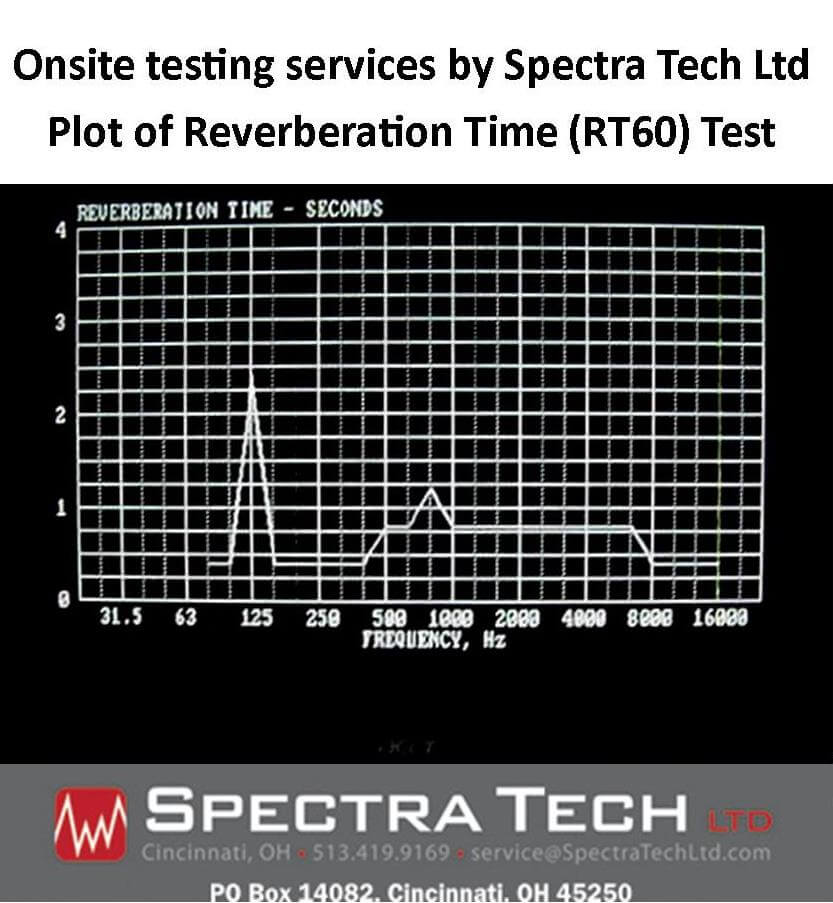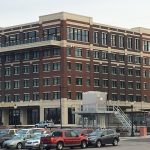Spectra Tech employes sophisticated equipment and software to measure and document the Room Reverberation Time (RT60), considered to be a universal descriptor of sound intensity. We can also provide assistance in designing solutions to reduce excessive reverberation times.
- The RT60 reverberation test measures the time required for a sound to decrease in intensity from it’s original maximum level by 60 decibels. The test is normally utilizes a wide spectrum impulse (e.g., gunshot, ballon pop, etc.) or a broad spectrum amplified noise signal that is abruptly turned off, to create the test signal. Our computer-based logging system records the decay in sound level in each of the 1/3 octave bands simultaneously, and assigns a preliminary value to the slope of each frequency plot. we are able to fine-tune the results and adjust the final slope of each frequency line, and determine the RT60 value for each 1/3 octave frequency band.
- Plot / Print Test Results: We can provide documentation of test results by plotting / printing the test values on paper, and / or provide the reslts in PDF format.
LINKS TO RELATED REFERENCE INFORMATION

- Prediction, Reverberation Time, RT60, Rectangular, Room, Non-Uniformly Distributed Sound Absorption, R. Neubauer, Consulting Bureau, Ingolstadt, Germany, and B. Kostek, Sound & Vision Engineering Department, Faculty of Electronics, Telecommunications and Informatics, Technical University of Gdansk, PL – 33 pages (describes the method currently used by Spectra Tech to optimize room acoustics – the “New Fitzroy” formula – and compares it to the Sabine, Norris Eyring, Millington-Sette, Tohyama and Suzuki, Arau, Nilsson, Annex D of the European Standard prEN 12354-6 [10], Kuttruff, and original Fitzroy formulae), Spectra Tech Ltd, Consultant
- Potential, effect of reverberation on speech intelligibility, Spectra Tech Ltd, Consultant
- RT60, Reverberation, Room, Acoustics, Optimization Program, User Guide V10.3, how our program works, Spectra Tech Ltd, Consultant

